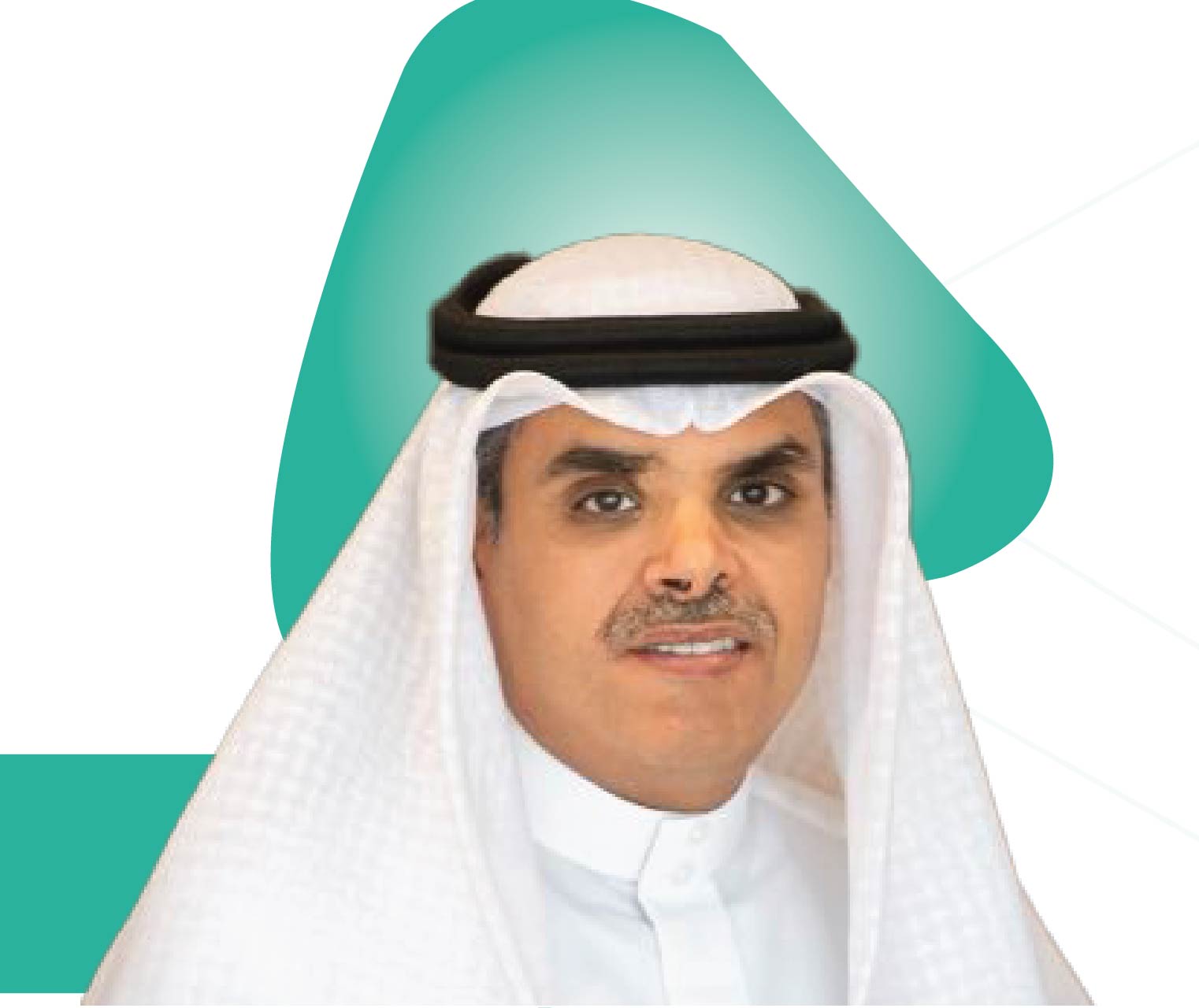Mission
A world class non profit sector that generously and efficiently contributes to the Nation’s social and economic development
Vision

- · Organizing and stimulating non-profit sector organizations by contributing to their development, licensing them, and supervising their financial and administrative operations.
- · Preparing strategies, plans, and performance indicators that revolve around the non-profit sector, thereby verifying their effectiveness and documenting valuable information for future reference.
- · Setting rules, guidelines, and standards, and establishing regulations in accordance with the sector’s governance and policies.
- · Issuing licenses and permits for non-profit sector organizations as required by existing regulations and in coordination with the appropriate authorities.
- · Overseeing non-profit sector organizations’ financials, administration, and classification, and working on their governance in accordance with the best international standards.
- · Coordinating with (and integrating) governmental supervisory units under which the non-profit sector activities fall, thereby developing and activating technical supervision and facilitating necessary processes for specialized sector organization establishment, encouraging non-profit work, and revitalizing the organizations’ role in the field.
- · Encouraging the culture of volunteer work and encouraging diversity within volunteer opportunities and increasing the number of volunteers in general.
- · Removing needlessly restrictive obstacles, providing administrative and technical support, and uplifting the capabilities of non-profit sector employees, in addition to designing and initiating government, private sector, and non-profit sector partnership programs.
- · Supervising the non-profit sector’s financial operations in coordination with relevant authorities, as well as working toward achieving financial sustainability, establishing priorities, and developing plans that enhance non-profit sector organizations.
- · Governance of the non-profit sector’s donation collection and campaigns in accordance with the requirements of relevant laws and regulations.
- · Raising awareness and emphasizing the importance and relevance of the non-profit sector by motivating participation in it, celebrating it, and reflecting on its achievements in relevant exhibitions, conferences, and seminars.
- · Conducting and encouraging studies, research, and statistics related to the non-profit sector and publishing the information in coordination and partnership with the relevant authorities, thereby establishing a database for the sector, its organizations, programs, needs, and priorities.
- · Establishing and organizing incubators and accelerators for non-profit sector organizations and encouraging both the non-profit and private sectors to establish (and engage in) them.
- · Enabling the non-profit sector to achieve its sustainable development goals, investing in social impact, and stimulating participation in the field.
- · Providing advisory and training services related to specializations free of charge.
- · Representing the Kingdom in international and regional organizations and forums related to this field.
The center was established to develop the non-profit sector and enable it to make a more substantial impact on society through…
 Support and Coordination
Support and Coordination Facilitating cooperation between and communication with the relevant government agencies nbsp
 Full Supervision
Full Supervision Financial administrative and technical supervision under the watchful eye of the government
 Integration of Efforts
Integration of Efforts Seamlessly and intuitively integrating government licensing service procedures and processes
 Organizing Roles
Organizing Roles Expanding upon the role of non profit sector organizations’ efforts in social development nbsp

د. سعدون بن سعد السعدون
ممثل من الجمعيات الأهلية

أ. سعود بن عبدالعزيز الجوير
ممثل الجمعيات التعاونية

أ. سعيد بن أحمد باسمح
ممثل القطاع الخاص

أ. عماد بن صالح الخراشي
ممثل الهيئة العامة للأوقاف

صاحبة السمو الأميرة هيفاء بنت عبدالعزيز آل مقرن
ممثل من ذوي الخبرة والاختصاص

د. عبداﻟﻠﻪ بن عبدالرحمن النملة
ممثل وزارة المالية

معالي المهندس أحمد بن سليمان الراجحي
رئيس مجلس الإدارة

أ. أحمد بن صالح الماجد
ممثل وزارة الموارد البشرية والتنمية الاجتماعية

أ. فلاح بن محمد السبيعي
ممثل وزارة الداخلية

د. أحمد بن عبدالعزيز إسماعيل
ممثل وزارة التجارة

صاحب السمو الأمير وليد بن ناصر آل سعود
ممثل من الجمعيات الأهلية

د. بدر حمود البدر
ممثل المؤسسات الأهلية

د. فهد بن علي العليان
ممثل من ذوي الخبرة والاختصاص
The History of Saudi’s Non-profit Sector
- Before delving into the history of the non-profit sector in the Kingdom of Saudi Arabia, it should be noted that the term “non-profit sector” in this context includes good deeds (such as providing those in need with financial support, food and shelter, and other means that contribute to their nourishment and wellbeing) carried out by individuals and organizations. Non-institutional charitable actions carried out by anyone aiming to do good in this world are, indeed, considered non-profit activities. The history of the Kingdom is rife with charitable people and charitable organizations whose nature is to give, help, and contribute to the greater good.
- Small wonder considering that the religion of Islam, on which this country is founded, encourages us to engage in such selfless acts and practices. As the noble hadith says…
- The believers, in their mutual love, compassion, and sympathy are like a single body; if one of its organs suffers, the whole body will respond to it with sleeplessness and fever.
- In order to kickstart the Kingdom’s non-profit sector movement, its Founder, King Abdulaziz, may he rest in peace, had carved out spaces for it within many other institutional entities, thus allowing the sector to grow and evolve. The following timeline illustrated the movements’ progression throughout four historically significant phases:
- 1928: His Majesty King Abdulaziz, may he rest in peace, created a system for distributing alms and subsidies. This served as the foundation on which the country’s social welfare was built.
- 1929: A committee, titled the Higher Charity Committee was established in Makkah al-Mukarramah.
- 1934: The country’s first orphan care facility, named the Home of the Two Holy Mosques’ Orphans, opened in Medina.
- 1963: The first home for the infirm and separated, which aimed to embrace elderly and incapacitated pilgrims who were stranded, opened in Makkah al-Mukarramah.
- Despite the challenges that research on the subject posed, whether conducted by individuals or by institutions, it was possible to pinpoint the sector’s launch (in its modern, official form and at an institutional level), by studying the Ministry of Hajj and Awqaf history, which was established in 1961 (and what is now known as the General Authority of Awqaf).
- Also, non-profit sector research found that Al-Birr Society in Makkah Al-Mukarramah, founded in 1951, is one of Saudi’s earliest (if not the first) registered philanthropic and non-profit organizations.
- The nation’s non-profit sector has had a growing presence in the local community in an official capacity since the midcentury. The Kingdom, however, witnessed a boost in the prosperity of the non-profit sector in the seventies, as shown by the historical observation above. This was largely inspired by the growth of the local economy, accredited to the Kingdom's rich and flourishing oil industry, which gave rise to many social programs and philanthropy organizations. In fact, one of the first associations that arose during this economic boom was established in the country’s Eastern Region: where the country’s first oil fields were discovered.
- Given the age of the Kingdom, which spans nearly three centuries, its non-profit sector needs, perhaps now more than ever, to be further developed so that it may, in turn, optimally contribute to the social and economic development of the nation. Up until 2018, the sector was comprised of only two non-profit entities: non-profit institutions and charitable institutions, the latter being four times as big as the former.





